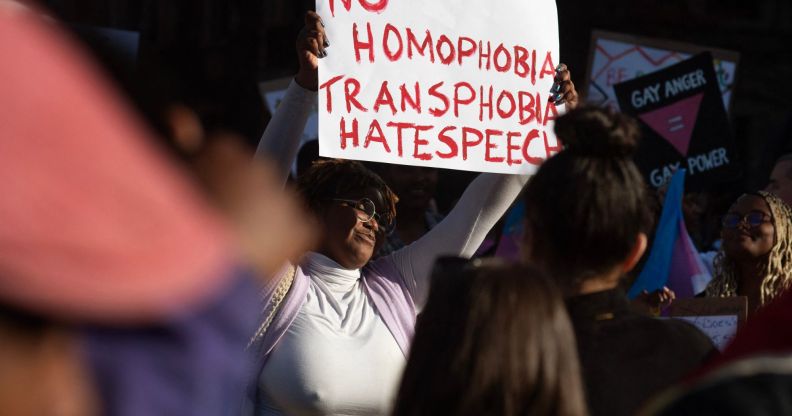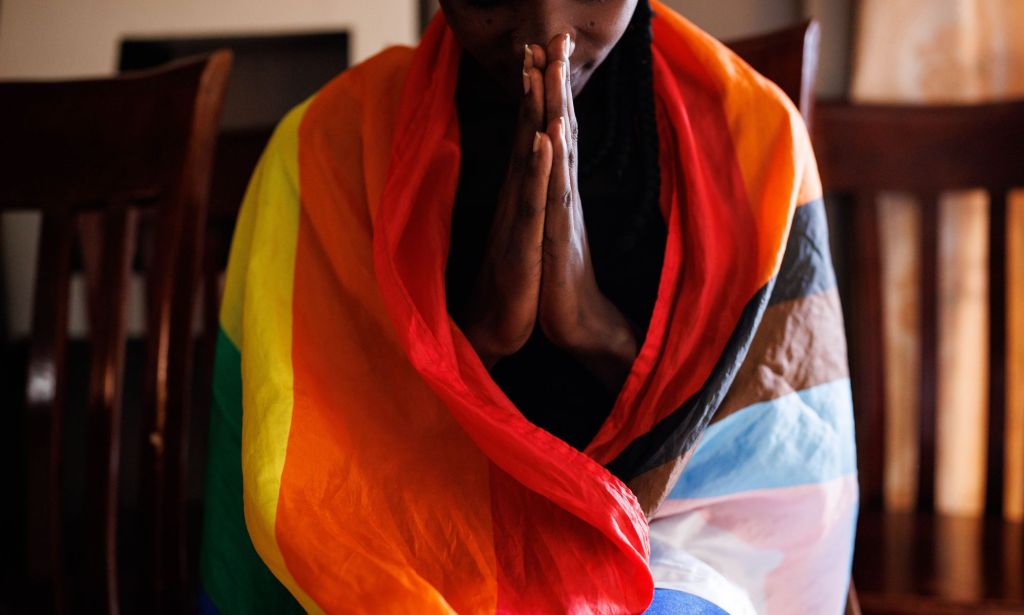EU’s continued funding of Uganda sparks backlash from LGBTQ+ campaigners

Activists said the EU’s plan to continue funding to Uganda doesn’t ensure that ‘those who spout hatred and catalyse violence and discrimination’ against LGBTQ+ people ‘won’t benefit from EU taxpayers’ money’. (Getty Images)
Activists said the EU's plan to continue funding to Uganda doesn't ensure that 'those who spout hatred and catalyse violence and discrimination' against LGBTQ+ people 'won't benefit from EU taxpayers' money'. (Getty Images)
Activists have slammed the European Union (EU) for missing a “critical opportunity” to take action over the Uganda’s harsh anti-LGBTQ+ law enacted in May.
The European Commission, which is part of the executive of the EU, confirmed this week that it wouldn’t suspend humanitarian aid to the East African nation despite passing the Anti-Homosexuality Bill.
The law outlaws same-sex marriage in Uganda, punishes same-sex acts with life imprisonment and calls for the deal penalty for “aggravated homosexuality” – which includes sex with a minor or otherwise vulnerable person, having sex with HIV positive and incest.
Jutta Urpilainen, the European commissioner for international partnerships, raised concerns that withholding financial assistance from Uganda due to this legislation would “deprive the most vulnerable populations, including LGBTIQ persons, from vital support” in a written written statement delivered to the European Parliament on Wednesday (6 September).
“Disengagement by the EU would also create gaps which may be further filled by other players who do not share EU values,” Urpilainen said.
The EU allocated €30 million in humanitarian aid to Uganda in 2023 alone. Since 2017, the EU has supported humanitarian action in Uganda with more than €278 million.
Funding from the EU has helped with infrastructure projects, health programmes and food assistance in Uganda.
However, Ugandan LGBTQ+ organisation Convening For Equality (CFE) slammed the EU’s position, saying it missed a “critical opportunity to take more strategic action to protect” LGBTQ+ people in the East African nation.
“The recent EU announcement misses a critical opportunity to take more strategic action to protect the fundamental principle of non-discrimination – something the EU and EU member states profess a deep commitment to,” Clare Byarugaba, one of CFE’s leaders, told Reuters.
Frank Mugisha, another CFE leader, added that the EU had other opportunities to create an “effective response” to the anti-LGBTQ+ law if it didn’t want to cut off financial support to Uganda.
“An effective response is one that fine-tunes and reallocates EU assistance to Uganda in ways that ensure that those who spout hatred and catalyse violence and discrimination against LGBTIQ people – including Ugandan government officials – won’t benefit from EU taxpayers’ money,” Mugisha said.
An earlier anti-LGBTQ+ bill in 2014 also prompted widespread international criticism and was later nullified by Uganda’s constitutional court on procedural grounds.
A growing number of queer Ugandans are being persecuted under the recent legislation
In August, there were reports that four people were arrested by police in Uganda for allegedly engaging in same-sex activity at a massage parlour.
Just a short while later, it was reported that a 20-year-old man was among the first people to be prosecuted for “aggravated homosexuality” after he was accused of having sex with a 41-year-old man.
LGBTQ+ people have said the recent legislation has a wide impact on the community in Uganda, with the threat of violence and blackmail looming large over their lives.
DeLovie Kwagala, a Ugandan photojournalist, told PinkNews that “violence against queer people has been happening over and over again” in the country.
“You are hunted for being Black but at the same time you are also hunted for being queer,” Kwagala said. “Visibility without protection is also a death sentence.”

In her statement, Urpilainen said the EU would continue to engage with Ugandan authorities and civil society to “ensure that all individuals, regardless of their sexual orientation and gender identity, are treated equally”.
“In that perspective, the EU is stepping up its support to civil society and LGBTIQ defenders, by promoting the universality of human rights and the principle of non-discrimination, and opposing the death penalty, with a specific focus on the protection of people and civil society organisations at risk,” she added.
Urpilainen added that “high-level EU officials have raised the issue with the Ugandan government, parliament and president”.
During these discussions, she said the EU officials emphasised that the “criminalisation of homosexuality is contrary to the principles of equality and non-discrimination in the Universal Declaration of Human Rights and the African Charter on Human and People’s Rights”.

